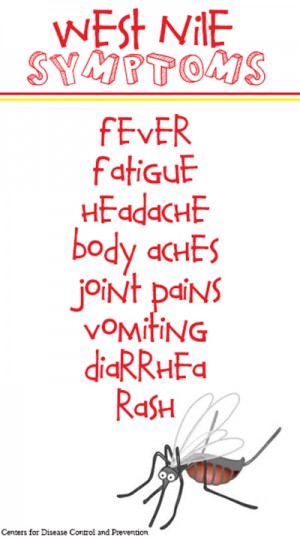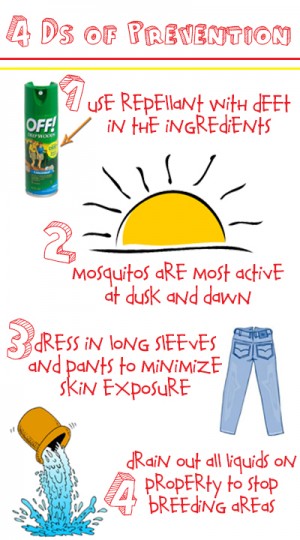West Nile virus is alive and well in Waco’s mosquito population.
Mosquitoes in the area tested positive as carriers of the West Nile virus, said David Litke, program administrator for the environmental health division at Waco-McLennan County Public Health District.
“The disease is currently present in our mosquitoes,” Litke said. “It’s already here in Waco, as we’ve seen from previous years, we just haven’t been notified of any contractions this year.”
Richard Duhrkopf, Ph.D., associate professor of biology who oversees mosquito-trapping studies in the Greater Waco area, said while no cases have been detected this year, there’s still a chance to contract the disease.
“Right now things are very quiet,” Duhrkopf said. “We’ve had a pretty mild summer with not enough rain to sustain populations.”
With tailgating spaces for the new McLane Stadium on the banks of the Brazos River, a natural breeding ground for mosquitoes, Duhrkopf said to rely on insect repellents.
“If people are really set on not getting bit, I would say don’t go to the game,” Duhrkopf said. “However, modern repellents works really well and those should work just fine for the day.”
Breeding season does not typically end until October, according to MosquitoReview.com, a website on mosquito patterns.
Once cooler weather arrives, mosquitoes become less active. However, according to the website, during warmer winter days some may become present again.
Litke said mosquitoes are able to breed in any amount of standing water, and such areas should be drained to prevent further development of mosquitoes.
“People often tend to think puddles are the only places they can breed,” Litke said. “They tend to forget that abandoned open water bottles sitting on the porch, bird baths or remaining fluid left in rain gutters also need to be drained regularly.”
West Nile shows up in patients at various intensities and Duhrkopf said if often starts with flu-like symptoms, which should be tended to as such. Later, if symptoms do not subside and the flu becomes stronger, doctors would look for indicators of West Nile neuroinvasive disease, which would be treated with steroids or other antibiotics.
According to the Texas Department of State Health Services, symptoms for those infected can range from headache to eventual paralysis.
West Nile fever, the milder form of the illness, includes fever, headache, body aches, a skin rash on the trunk of the body and swollen lymph glands.
Litke said the best way to prevent getting stung by a mosquito and contracting the disease is to be mindful of nearby water sources and dress protectively.
“Drain any standing water in your yard,” Litke said. “Be mindful that mosquitoes are most active at dawn and dusk, dress in long sleeves and pants to minimize your skin exposure to mosquitoes and use any bug spray that contains DEET.”
DEET is designed for direct application to people’s skin to repel insects, according to the United States Environmental Protection Agency. Rather than killing them, DEET works by making it hard for these biting bugs to smell humans and prevent the spread of disease by mosquitoes.
To date, 41 confirmed cases of West Nile illness have been recorded in Texas, according to the Texas Department of State Health Services.








